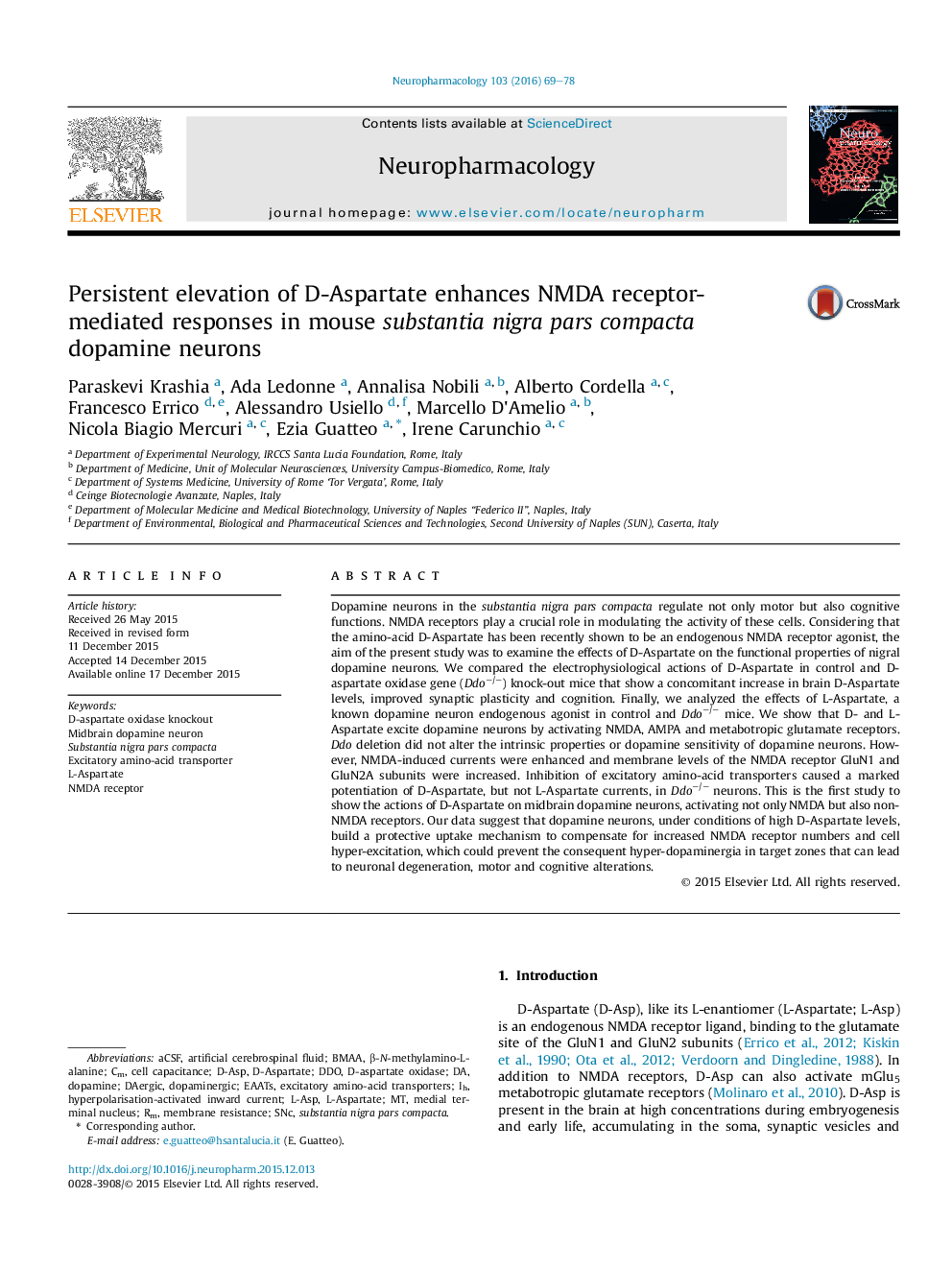| Article ID | Journal | Published Year | Pages | File Type |
|---|---|---|---|---|
| 5813302 | Neuropharmacology | 2016 | 10 Pages |
Abstract
Dopamine neurons in the substantia nigra pars compacta regulate not only motor but also cognitive functions. NMDA receptors play a crucial role in modulating the activity of these cells. Considering that the amino-acid D-Aspartate has been recently shown to be an endogenous NMDA receptor agonist, the aim of the present study was to examine the effects of D-Aspartate on the functional properties of nigral dopamine neurons. We compared the electrophysiological actions of D-Aspartate in control and D-aspartate oxidase gene (Ddoâ/â) knock-out mice that show a concomitant increase in brain D-Aspartate levels, improved synaptic plasticity and cognition. Finally, we analyzed the effects of L-Aspartate, a known dopamine neuron endogenous agonist in control and Ddoâ/â mice. We show that D- and L-Aspartate excite dopamine neurons by activating NMDA, AMPA and metabotropic glutamate receptors. Ddo deletion did not alter the intrinsic properties or dopamine sensitivity of dopamine neurons. However, NMDA-induced currents were enhanced and membrane levels of the NMDA receptor GluN1 and GluN2A subunits were increased. Inhibition of excitatory amino-acid transporters caused a marked potentiation of D-Aspartate, but not L-Aspartate currents, in Ddoâ/â neurons. This is the first study to show the actions of D-Aspartate on midbrain dopamine neurons, activating not only NMDA but also non-NMDA receptors. Our data suggest that dopamine neurons, under conditions of high D-Aspartate levels, build a protective uptake mechanism to compensate for increased NMDA receptor numbers and cell hyper-excitation, which could prevent the consequent hyper-dopaminergia in target zones that can lead to neuronal degeneration, motor and cognitive alterations.
Keywords
Related Topics
Life Sciences
Neuroscience
Behavioral Neuroscience
Authors
Paraskevi Krashia, Ada Ledonne, Annalisa Nobili, Alberto Cordella, Francesco Errico, Alessandro Usiello, Marcello D'Amelio, Nicola Biagio Mercuri, Ezia Guatteo, Irene Carunchio,
